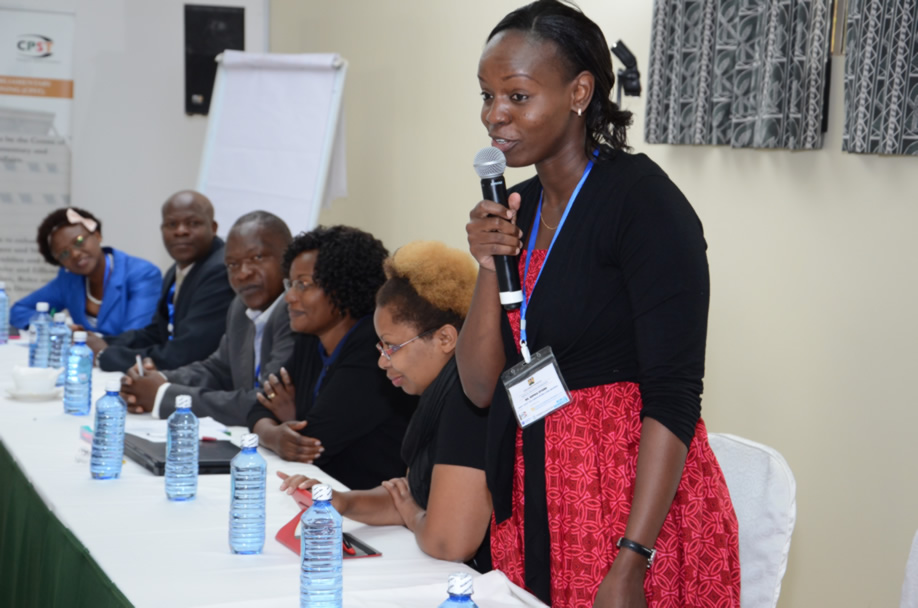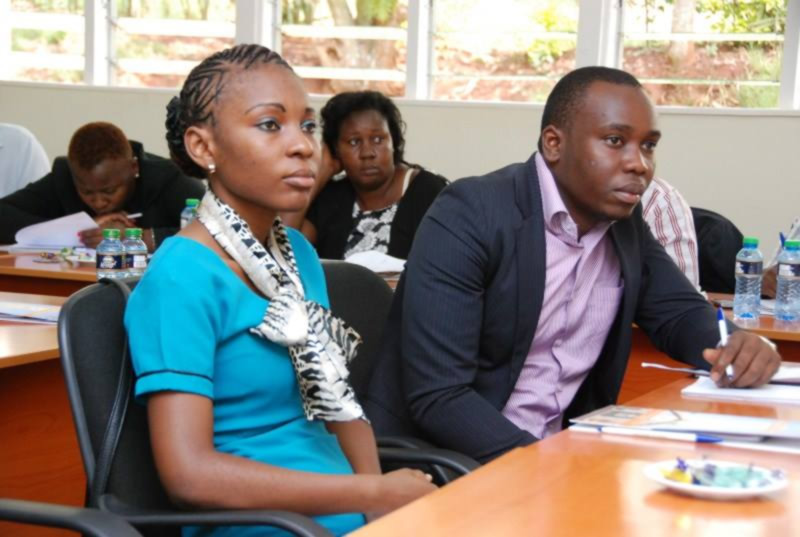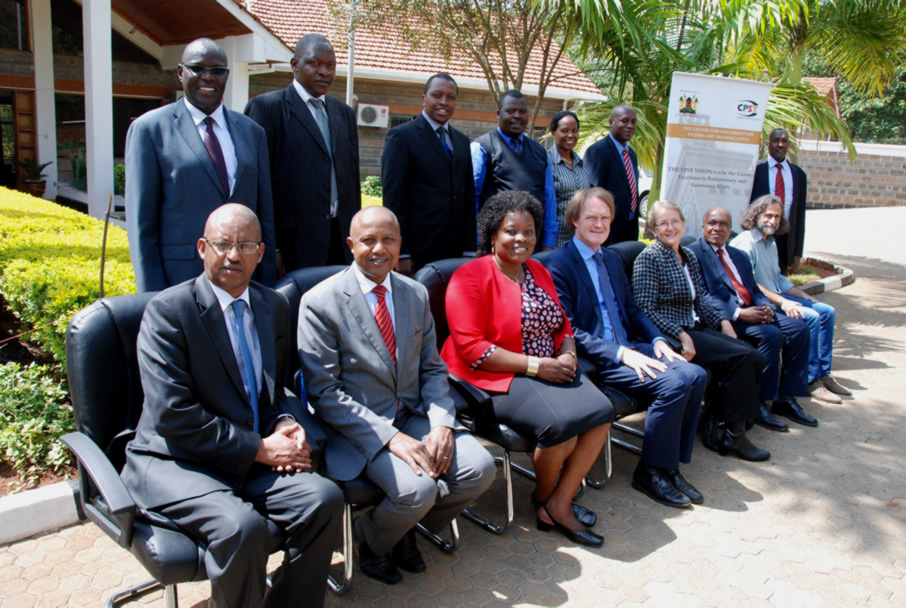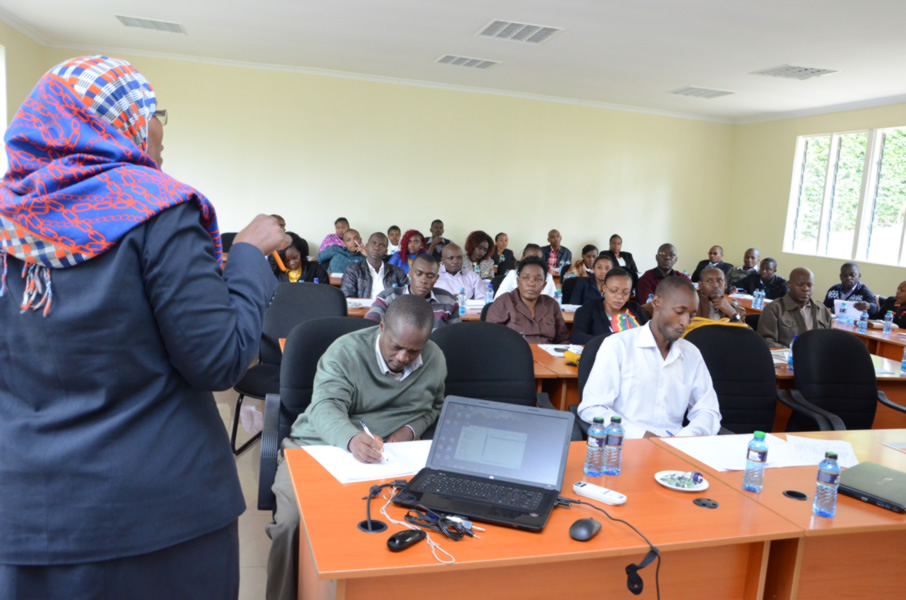Capacity Building for Legislative Staff:
Acknowledgements
This manual on cross-cutting issues has been prepared with the support and generous contribution of many individuals and organisations. We immensely appreciate the generous financial support of the Ford Foundation, State University of New York (SUNY) Kenya, Westminster Foundation for Democracy (WFD), and UN Women. The involvement of these organisations is a clear demonstration of their strong commitment to capacity building for the legislatures in Kenya and the region. My sincere appreciation goes to the Resident Representatives of these organisations Mr Maurice MakOloo, Mr Francis Aywa, Ms Hope Muli and Mrs Zabib Kavuma respectively.
About this Manual
Cross cutting issues touch on general principles of life. In the context of this manual, cross cutting issues are issues that will facilitate or assist in the other core areas that CPST is training in and has prepared manuals on. Whereas the stated mandate of CPST is training on legislative matters, it is necessary that such training is cognisant of issues that cut across disciplines as they are of equal importance in complementing the core issues CPST focuses on.
CPST 123:
-
Image Management and Rules of Etiquette
DetailsCourse Duration: 8 HoursEtiquette is defined as the manners and behaviours or conduct that have been established as acceptable or required in social relations, in a profession, or in official life. It is expected that leaders will exhibit correct etiquette in their day-to-day interactions.
Leaders in all spheres recognise that building the right public perception and image is imperative for their success. For political leaders, this is critical as public perception has a direct causal relationship to the success or failure of one’s political career. A positive standing makes other people attribute confidence, superior ability and other positive attributes to an individual. It further opens doors to an individual, giving them access to decision makers, greater success in hiring and salary levels, allowing them to lead satisfied personal, professional and social lives. It is therefore important for people in leadership positions or those moving up the career ladder to appreciate that image management is a continuous proactive process of evaluating and controlling the impact of one’s appearance and conduct with the objective of achieving one’s goals.
The constitution specifies the role of the legislature and its relationship with the executive in matters PFM. Constitutions and budget laws elaborate on the budgetary roles and powers of the legislature. Legal constraints and budget practices vary greatly from country to country and moreover, in many countries such as Kenya, the legislature is increasingly playing a prominent role in budget matters.
CPST 125:
-
Parliamentary Protocol and Diplomacy
DetailsDuration: 12 HoursIn Kenya, parliamentary diplomacy has gained much more relevance and attention recently, going beyond just bilateral exchanges and visits. The Constitution of Kenya 2010, besides redeeming Parliament fully from the Executive, also created provisions for the direct engagements in diplomacy issues that were hitherto, a reserve of the executive arm of government. Globally, the increased blurring of boundaries between what is national and what is foreign has led to a greater need for parliamentarians to consider with a global mindset the issues put before them. In Kenya, the issue of the ICC confirms the diminishing of national jurisdictions and the enhancement on international jurisdiction even on matters that are internal in nature. The continuous involvement of Parliament as a key actor in what has come to be known as the Kenyan Case confirms the relevance of Parliament in Diplomacy. Further, the Constitution provides a key parliamentary mandate on international treaties and accords requiring that they must be ratified by Parliament.
Besides looking at the international relations aspect, this module will look at the interrelation between the three arms of government and the dispute resolution mechanisms in the whole realm of separation of powers. Parliaments will usually host high-level dignitaries including heads of state and government. An address to the national parliament is a usual feature in the itinerary of a visiting head of state or government. Consequently, the module will look at handling VIPs.
The module will further look at parliamentary organisations, their mandates and operations, order of precedence in parliament and persuasion and negotiation skills
CPST 126:
-
Conflict Management in Legislative Context
DetailsDuration: 5 HoursConflict is in its basic form is understood to mean ‘being at variance, disagreement or contradictory’. Conflict pertains to opposing ideas and actions resulting in an antagonistic situation. These elements that define conflict are indeed real life issues that humankind deal with on daily basis and that are inevitable. This is because each individual or group have a way of looking at things and act as per what they think is proper. What is critical however is the actions that follow conflict or disagreement; and this is where role of conflict management comes in. The relationship between conflict and aftermath is best captured by American Author Max Lucade who held that ‘Conflict is inevitable, but combat is optional’.
Conflicts manifest themselves as differences between two or more persons or groups, nations or regions characterised by tension, disagreements, polarisation and possible strife.
CPST 114:
-
Gender Mainstreaming in Parliamentary Business
DetailsDuration: 8 HoursGender mainstreaming is the public policy concept of assessing different implications for women and men of any planned policy action, including legislation and Courses, at all levels of governance (Booth and Bennett, 2002). With reference to legislation, the Inter‐Parliamentary Union (IPU) defines a gender sensitive Parliament as one which responds to the needs and interests of both men and women in its structures, operations, methods and in its work as a nation’s peak legislative institution (IPU, 2008). In ensuring that gender is mainstreamed, legislative institutions will have to implement changes that promote less aggressive legislative behaviour; more family‐friendly sitting hours; the introduction of childcare facilities and parental leave for legislators; and gender sensitive training Courses for all legislators (Palmieri, 2003). Beside this consideration, radical change involving transforming and democratising institutional culture and rules of engagement in governance institutions including Parliament, with a view to make them more conducive to prompting gender equality and mainstreaming. In particular, there is need to change the dominant masculine norms and values that are embedded in these institutions. It is these that act as the key structural barrier for women to meaningfully influence change within their mandate.
It is worth noting that gender mainstreaming does not replace government policies on gender inequality. In fact, gender equality and gender relations should be viewed as complementary strategies and should be examined together. One of the most important prerequisites in achieving gender equality is the political will to implement a strategy accompanied by internalisation of democratic culture, and values of equality and social justice. Arguably, then it would be logical to implement gender mainstreaming strategies at a level where such strategies are enacted — the legislature. Given this understanding, it is paramount that legislators and legislative staff are given sufficient preparation, tools and instruments to put gender mainstreaming strategy into practice. This means that people involved have to be trained. This forms the core of this course.
-
CPST stands for?
Centre for Parliamentary Studies and Training



















